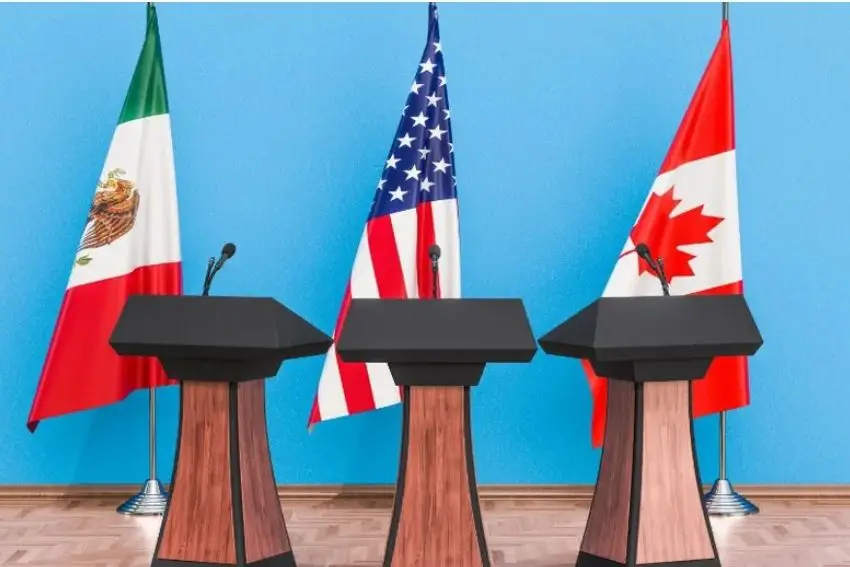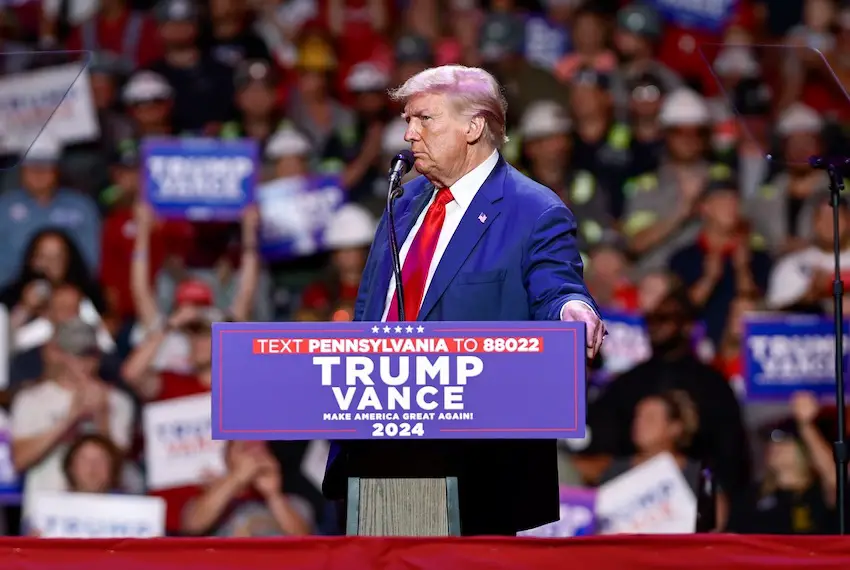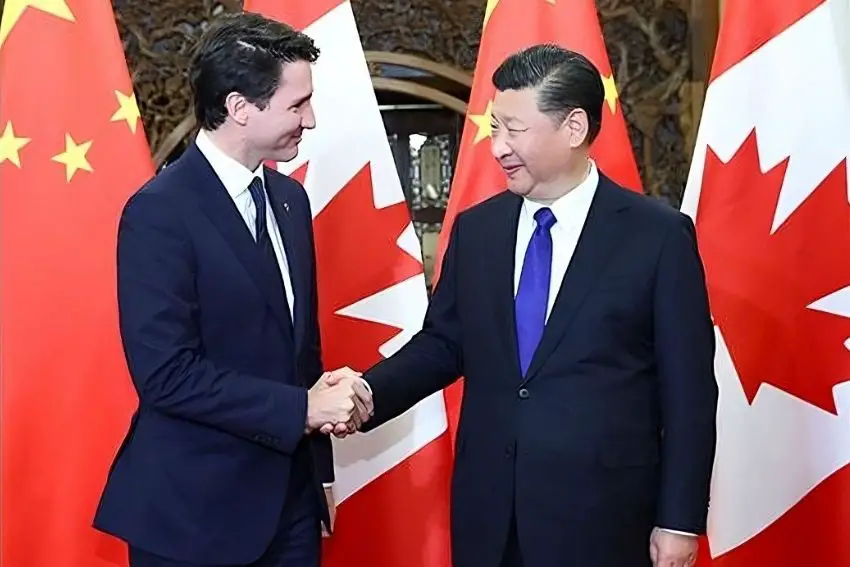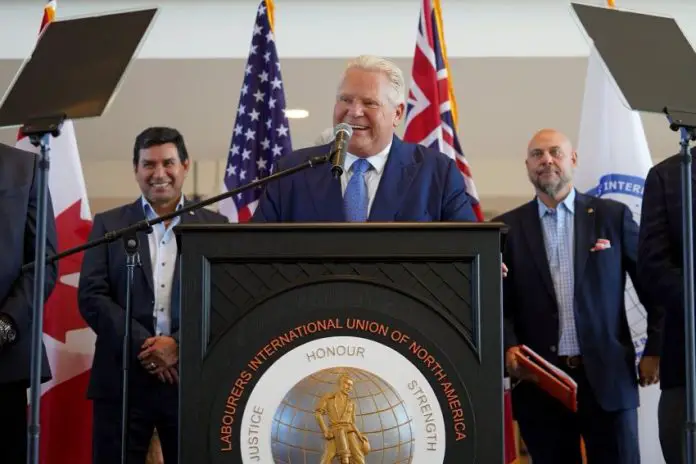The premier of the Canadian province of Ontario would like to see the USMCA trade pact terminated unless Mexico matches U.S. and Canadian tariffs on Chinese imports.
Doug Ford, premier of Canada’s most populous province since 2018, took to the X social media platform on Tuesday to accuse Mexico of becoming a low-tariff “backdoor” into North America for Chinese products, and to advocate the negotiation of a bilateral Canada-United States free trade agreement “if Mexican won’t fight transshipment.”

“Free trade needs to be fair. Since signing on to the United States-Mexico-Canada Agreement, Mexico has allowed itself to become a backdoor for Chinese cars, auto parts and other products into Canadian and American markets,” Ford said.
The situation, he added, is “putting Canadian and American workers’ livelihoods at risk while undermining our communities and doing enormous harm to our shared economic success.”
“If Mexico won’t fight transshipment by, at the very least, matching Canadian and American tariffs on Chinese imports, they shouldn’t have a seat at the table or enjoy access to the largest economy in the world,” the premier wrote.
“Instead, we must prioritize the closest economic partnership on earth by directly negotiating a bilateral U.S.-Canada free trade agreement that puts U.S. and Canadian workers first.”
Ford’s comments came a week after the victory of Donald Trump in the presidential election in the United States, and ahead of the 2026 review of the USMCA, which superseded NAFTA in 2020.
Trump has also railed against Mexico forwarding Chinese products north, saying in an address at the Detroit Economic Club last month that he would seek “strong new protections against transshipment” in the USMCA “so that China and other countries cannot smuggle their products and auto parts into the United States tax-free through Mexico to the detriment of our workers and our supply chains.”

At a press conference on Tuesday, Ford once again made critical remarks about Mexico, saying that it is importing cheap products from China and consequently “undercutting our hardworking men and women, not only here but in the U.S.”
“… They’re slapping a ‘Made in Mexico’ sticker on and shipping it up,” he said.
“… What I’m proposing to the federal government [is] we do a bilateral trade deal with the U.S. and if Mexico wants a bilateral trade deal with Canada, God bless them,” Ford said.
Tariffs, trade and transshipment
Mexico implemented 5-50% tariffs on a wide range of Chinese products in April, but its duties on some goods, such as electric vehicles, are lower than those levied by the United States and Canada on imports from China.
In addition to imposing tariffs on goods from China and other countries with which it doesn’t have trade agreements, Mexico is actively seeking to reduce its reliance on imports from the East Asian economic powerhouse.
Finance Minister Rogelio Ramírez de la O said in late July that replacing just one-tenth of Chinese imports with products made in North America would significantly boost economic growth in both Mexico and the United States.
Earlier in July, Ramírez said that Mexico buys US $119 billion worth of products per year from China and sells just $11 billion worth of goods to China.
“China sells to us but doesn’t buy from us and that’s not reciprocal trade,” he said.
The value of Chinese products that are shipped to the United States and Canada via Mexico is not known, but the Financial Times reported in early 2024 that “some Chinese goods” that would have previously been shipped directly to the United States “are still making their way to the country via Mexico — without facing the same levies.”

Those goods, despite Ford’s claim, do not include Chinese-made vehicles, which could not be passed off as being made in Mexico even with the kind of “sticker” the Ontario premier referred to.
In an article headlined “China circumvents US tariffs by shipping more goods via Mexico,” the Financial Times also reported on data that showed that the number of 20ft containers shipped to Mexico from China increased 28% between the first three quarters of 2022 and the same period of 2023.
Earlier this year, the United States became particularly concerned about an increase in steel and aluminum exports from Mexico.
In a meeting in February with Mexico’s then economy minister Raquel Buenrostro, U.S. Trade Representative Katherine Tai “stressed the urgent need for Mexico to take immediate and meaningful steps to address the ongoing surge of Mexican steel and aluminum exports to the United States and the lack of transparency regarding Mexico’s steel and aluminum imports from third countries,” according to a statement from Tai’s office.
Mexico implemented tariffs on steel nails and balls from China the following month, while the tariffs that took effect in April hit Chinese steel and aluminum among a wide range of other product categories.
Furthermore, Mexico and the United States announced new measures in July to combat the circumvention of U.S. tariffs on steel and aluminum. They included the implementation of a North American “melted and poured” standard for steel and a similar requirement for aluminum in order for those products to qualify for tariff-free shipment to the United States.

The United States is also concerned about the possibility of Chinese companies making cars, including electric vehicles, in Mexico and exporting them to the U.S.
As things stand, no major Chinese automakers have plants in Mexico, although some, including EV giant BYD, have plans to establish a manufacturing presence here soon.
Could bilateral trade deals really supersede USMCA?
Yes, but it appears extremely unlikely that the three-way North America free trade pact will be terminated anytime soon.
While Trump has threatened to impose tariffs on Mexican exports to the United States, and declared last month that he would “have a lot of fun” renegotiating USMCA, he has not advocated the termination of the pact he negotiated and signed during his first term as president.
“I terminated NAFTA. That’s a pretty big thing. A lot of people said it would be impossible to do. I got it done, and we have a great deal now,” he said in Detroit.

“What we have to do is make it much better even, and we’ll be able to do that very shortly,” said Trump, who suggested in 2018 that NAFTA could be replaced with bilateral trade accords.
Premier Ford, of course, does not represent the government of Canada, although he said in a subsequent X post on Tuesday that he had spoken to Prime Minister Justin Trudeau about “upcoming USMCA renegotiations” and that they “agreed about the need to keep standing up for Canadian and Ontario workers.”
Trudeau himself said Tuesday that “just about all of our partner democracies around the world have expressed varying degrees of concern about Chinese overcapacity.”
Indicating that he wants the USMCA to continue, the prime minister added that Canada would “continue to work with partners like the United States, and hopefully Mexico as well, to make sure that we are united in our desire to protect good jobs.”
For its part, Mexico is certainly in favor of the continuation of the USMCA, under whose terms it became the world’s top exporter to the United States. President Claudia Sheinbaum has said on repeated occasions that the three North American trade partners complement each other rather than compete with each other economically. Indeed, the economies and supply chains of Mexico, the United States and Canada have become increasingly integrated during the three decades since NAFTA took effect in 1994.
In a report on Ford’s remarks, the Canadian Broadcasting Corporation said that “booting” Mexico from the USMCA “would be opposed by large companies with business in all three countries.”

“It also would be viewed skeptically by some who see Mexico as a political ally in preserving U.S. congressional backing for North American trade,” CBC said.
“The huge commercial flow across the Mexico-U.S. border, along with the enormous Mexican-American population, creates support for the pact among southern U.S. lawmakers with fewer connections to Canada.”
Still, Mexico’s growing trade relationship with China, as well as the influx of Chinese investment to Mexico, could be highly contentious issues at the USMCA review in 2026, especially if the United States and Canada continue to see their southern neighbor as a “back door” to the North American market.
The Sheinbaum administration, however, has demonstrated that it is firmly committed to North America and will not allow its trade and investment relationship with China to adversely affect its relationship with the United States – which imports around 80% of all Mexican exports – and Canada.
For example, Economy Minister Marcelo Ebrard said last month that Mexico would “mobilize all legitimate interests in favor of North America” amid the ongoing trade war between the United States and China. That war looks set to intensify when Trump returns to the White House in January, and the 47th U.S. president – in an extension of his “America first” ideology – could even ignite a tit-for-tat trade conflict with Mexico by imposing tariffs on Mexican exports, even while the USMCA remains in force.
Interesting times, to say the least, undoubtedly lay ahead, and the USMCA – perhaps in a renegotiated guise – will almost certainly be a part of them.
Indeed, even if all three parties do not confirm their desire to extend the agreement as part of the six-year review in 2026, the USMCA cannot be immediately terminated.
Instead, Mexican, U.S. and Canadian officials “will meet again in the seventh year, and each year thereafter until the 16th year,” according to an article published earlier this year by Rice University’s Baker Institute for Public Policy.
“If they cannot agree by the 16th year” – 2036 – “the agreement terminates,” wrote Baker Institute nonresident fellow Simon Lester.
